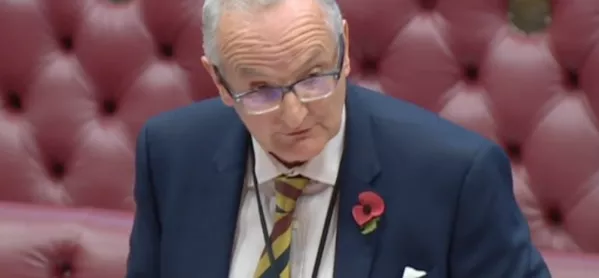A government minister has said there should be a debate about whether the chairs of major academy trusts should be paid.
Lord Agnew said his preference was to keep trusts being run by a “volunteer army” for the moment but said the prospect of paying the chairs of major academy trusts was an important question.
He described the idea of paid trust chairs as a possibility but questioned how much support it would have.
Speaking at the Schools NorthEast Academies conference, he said: “Should the people running these organisations be paid? That is the big question.”
He asked for a show of hands from the audience which he said showed there was “very little appetite” for the idea.
Lord Agnew also highlighted Holland’s school system which he said had academised around 25 years ago and where the chairs of larger trusts are paid.
“I am not saying we should pay chairs of MATs, I am not saying that but I think it deserves a debate because it is a very important question.
“We have worked very hard to bring more expertise onto boards.”
He added: “When I describe the school system I see it as a triangle and at the top is the governance. If you have good governance that will flow down into good use of the money and a good education. I absolutely put the governance at the top.”
Lord Agnew’s comments follow calls for the government to test the idea of paying school governors in a bid to address shortages among disadvantaged communities.
The call came in a report, Who governs our schools?, written by public policy analyst Tony Breslin for the Royal Society for the Encouragement of Arts, Manufactures and Commerce (RSA) in 2017.
Speaking at the conference in Newcastle, Lord Agnew also highlighted the importance of the DfE’s Opportunity North East programme, which he will chair, which will see £24m invested in school improvement programmes.
He said: “Through Opportunities North East, we will harness the things that are having the greatest impact. One of the things that frustrates me about the education system is that we do tend to reinvent the wheel and I am very focused in this particular exercise in finding what works and using it and making sure we measure the initiatives we are using so that we are not just spraying good intentions around.”
He also told heads in the North East that the region was one of the areas that had been chosen to have an early rollout of the Early Career Framework in 2020, a year before most of the rest of the country.
And Lord Agnew said he wanted to help schools to reduce costs through “a new cadre of school resource management advisors”.
“They are practising sector experts in resource management working collaboratively with schools and trusts to provide expert advice to help schools make best use of their revenue,” he said.
“We deployed them initially in some of our weaker schools and to give you an idea of their impact in the first 80 schools they identified £40m of savings.
“They are being strictly validated to the extent that nearly half of those going through the programme are not passing. They know what they are doing.”
He told his audience he did not want to be flippant about school funding as he understood that it was tight but he said he believed DfE experts could help schools find savings.
Lord Agnew has previously sparked controversy by betting heads a bottle of champagne that he could find savings at their school.




